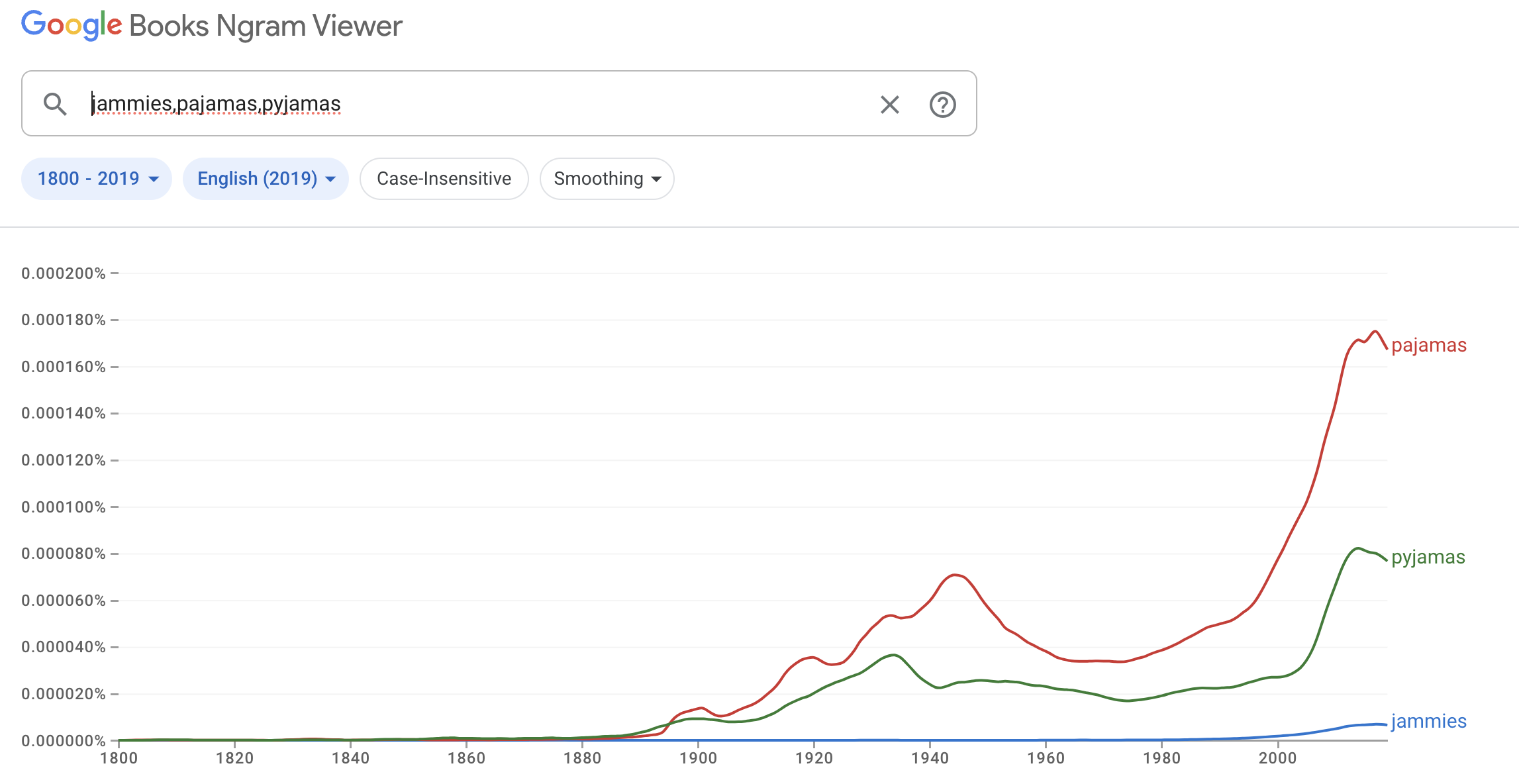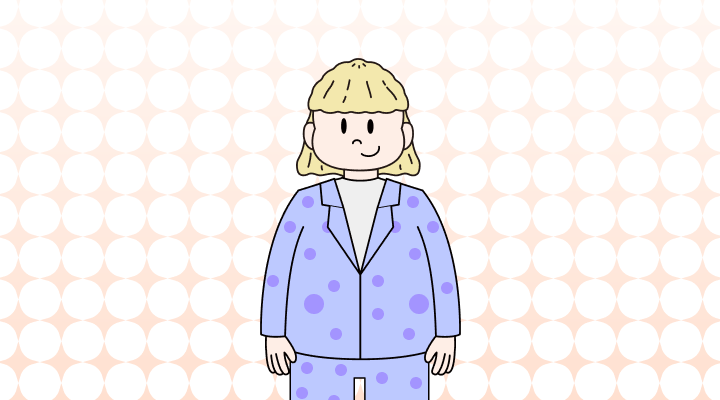"Jammies" is an informal word that means "pajamas," nighttime clothes worn to sleep. The colloquial "jammies" is typically used by children. Adults may also use it when speaking to children, and teenagers may use the word for fun as slang.
Pajamas (American English), or pyjamas (British English), are comfortable clothes for sleeping or lounging around the house. Meanwhile, "jammies" is a casual and friendly way to refer to sleepwear. For instance, a five-year-old girl may say she is going to wear her favorite pink "jammies" to sleep. That means she wants to wear pink pajamas to bed. Before bedtime on another day, her mother may say in a fun and endearing tone, "Time to put on your jammies!" to her daughter, using "jammies" as a cute and light way of saying "pajamas," even though the mother would not use the child-like word "jammies" with other adults.

The timeline of "jammies"
According to the Oxford English Dictionary, the earliest known use of "jammies" was in the 1920s, while Merriam Webster states the first known use was in 1912. In contrast, because "jammies" is a colloquial word, it does not have a strong presence in published books according to Google Books Ngram Viewer (see graph below).

The origins of "pajamas" or "pyjamas"
The word "pajamas," or "pyjamas," has its origins in the Persian language. It comes from the Persian word "پايجامه" (pāyjāma), which means "leg garment" or "leg clothing." The term was adopted into English in the 19th century, likely through interactions with the British Empire in India, where Persian-influenced clothing was common.
Initially, pajamas referred specifically to loose-fitting trousers tied at the waist, often worn in South Asia and the Middle East. Over time, the term evolved to include the combination of loose-fitting trousers and a matching top, which is the modern concept of pajamas as sleepwear.
When and when not to use "jammies"
Because "jammies" is informal slang, it is best not to use it in business emails, academic writing, and other formal writing. Adults would mostly use it with young children or purposely for fun with people they are close to. And of course, if you are a young child yourself, feel free to use "jammies."
Example sentences
- Every night, before going to bed, he puts on his favorite jammies.
- The children eagerly changed into their jammies for a cozy bedtime story.
- She loves wearing her flannel jammies during the cold winter months.
- I forgot to pack my jammies for the sleepover, so I borrowed a pair from my friend.
- After the pajama party, the room was filled with jammies of all colors and patterns.
- His jammies had cute cartoon characters printed on them.
- The baby looked adorable in his little jammies with teddy bears on them.
- Jammies are perfect for a lazy weekend morning when you just want to stay in.
- I can't wait to jump into my soft, warm jammies after a long, tiring day.
- For the overnight flight, she wore comfortable jammies to ensure a good night's sleep.
Want to sound like a native speaker?
Engram’s AI-powered grammar checker makes your English sound like a native speaker’s, suggesting natural English expressions on top of fixing grammar, spelling, punctuation, word order, and vocabulary.

Reference:



















